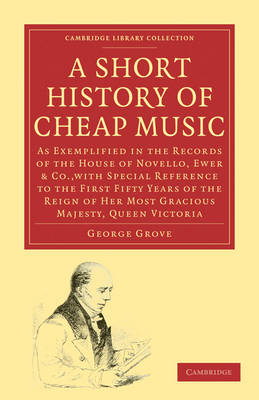Cambridge Library Collection - Music
2 total works
Beethoven's symphonies captured the public imagination from the outset and remain compelling today. Revolutionary in their time, these life-enhancing works now sit at the centre of the classical music repertoire, retaining their ability to delight and inspire. The career of Sir George Grove (1820-1900) ranged from civil engineering to biblical scholarship, but he is best known for editing his celebrated Dictionary of Music and Musicians. A driving force at the heart of nineteenth-century British musical life, Grove organised important concerts at the rebuilt Crystal Palace in Sydenham, and he served as the first director of the Royal College of Music from 1883 to 1894. First published in 1896, and reissued here in its swiftly corrected and indexed second edition, this work is a classic of musical analysis, exploring the composition, structure, performance and reception of each symphony in turn. Intended for 'the amateurs of this country', it represents the culmination of a lifetime's research.
The publisher Novello was hugely influential in making music affordable for a wider section of the Victorian public. A Short History of Cheap Music, published in 1887, focuses on Novello's role. It begins with the establishment of the house in 1811, when the founder, Vincent Novello, printed his first book at his own personal expense. Soon afterwards the house made available cheap editions of major musical compositions including Mozart's and Haydn's masses, Purcell's sacred music, and various Italian and English works. It also printed a variety of publications and journals dedicated to music, advocated the reduction of taxes on music, and organised events for the advancement of the musical arts. The author shows how by finding cheaper methods for printing music, organising cheap concerts, and establishing new choral societies, the house of Novello gradually created a taste for music among new audiences, a process paralleled today in the new media.

